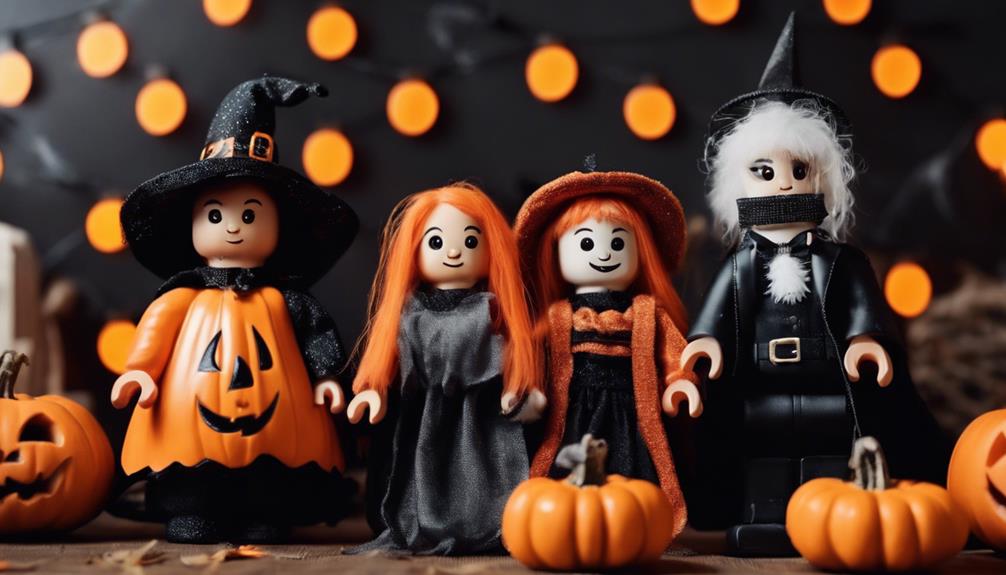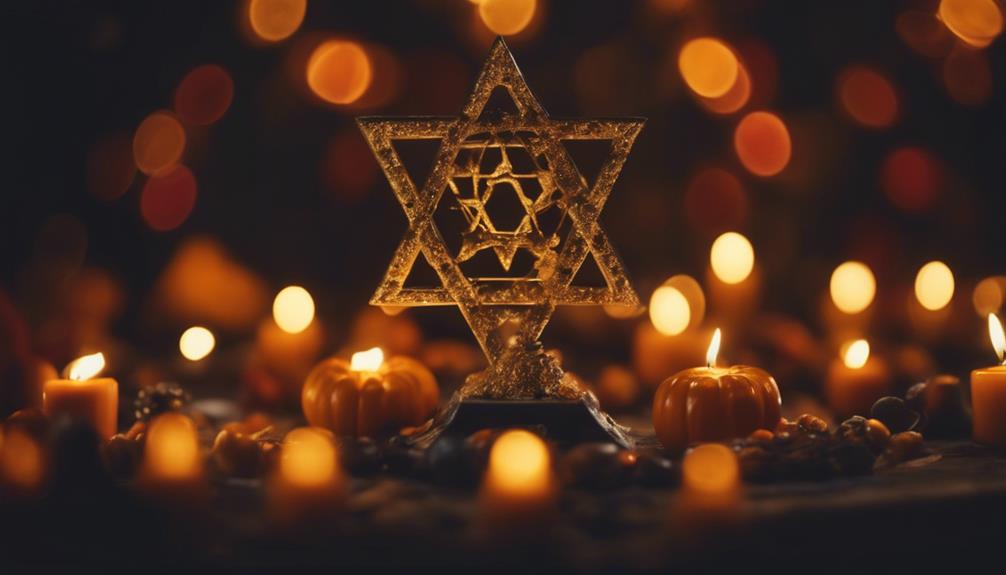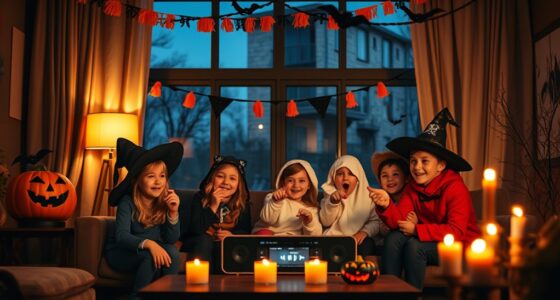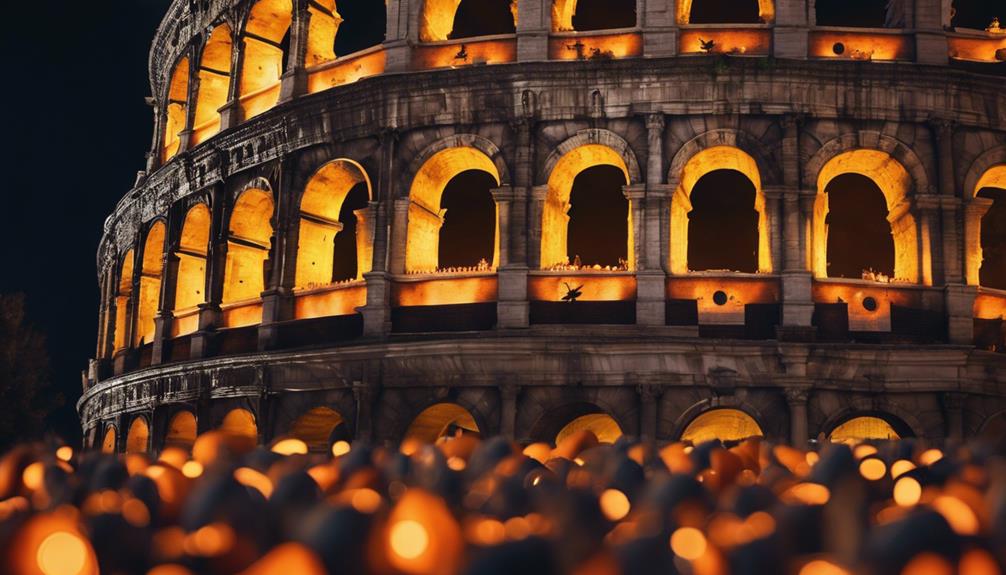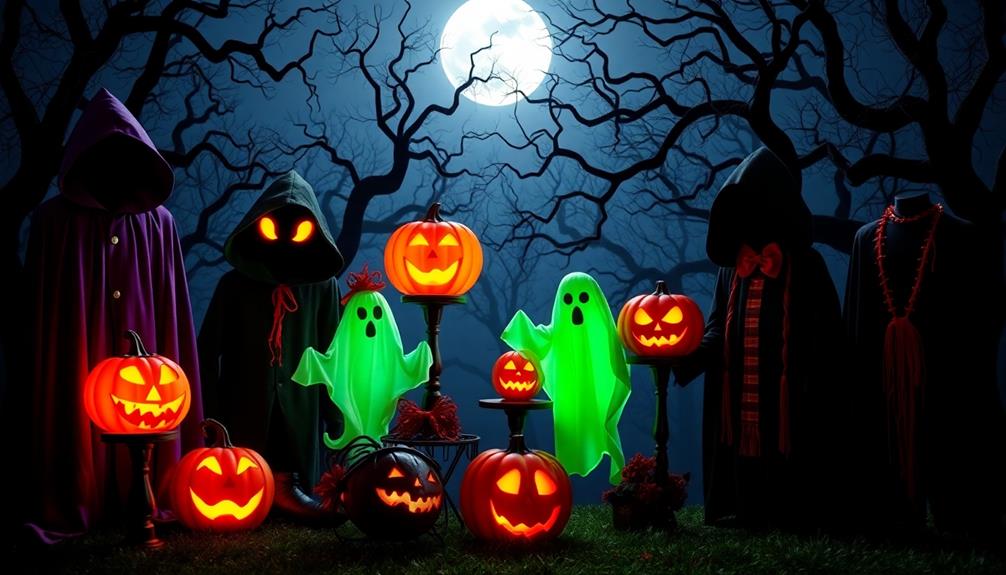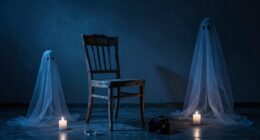Yes, Halloween is considered a holiday, but not in the official federal or religious sense. While 27% of Americans see it as a holiday, others view it more as a cultural celebration. Halloween's roots trace back to ancient Celtic customs, blending both religious and historical influences. The festival has evolved over time, incorporating traditions like costume parties, trick-or-treating, and haunted house visits. If you seek a deeper understanding of Halloween's significance and how it compares to other official holidays, there's more to uncover about its rich history and modern-day celebrations.
Key Takeaways
- Halloween is not an official federal or religious holiday.
- It is not universally observed as a religious holiday by Christian denominations.
- 27% of Americans consider Halloween a holiday, while 44% view it as a cultural celebration.
- The majority see Halloween as a cultural event rather than a formal holiday.
- Halloween is more widely recognized as a cultural celebration rather than an official holiday.
Historical Origins of Halloween
The historical origins of Halloween can be traced back to the ancient Celtic festival of Samhain. This festival marked the end of the harvest season and the beginning of winter for the Celts. They believed that on October 31, the boundary between the living and the dead blurred, allowing spirits to roam the earth. During Samhain, Celtic priests known as Druids would make predictions about the future. The influence of Roman festivals like Feralia and Pomona intertwined with Celtic traditions surrounding Halloween, enriching the celebrations.
In A.D. 609, Pope Boniface IV dedicated the Pantheon in Rome to Christian martyrs. This act by the Pope contributed to the evolution of Halloween from the ancient Celtic festival of Samhain to the festival we recognize today. The ancient origins of Halloween showcase a blend of Celtic and Roman traditions that have shaped the festival into what it's known as in modern times.
Religious Significance of Halloween
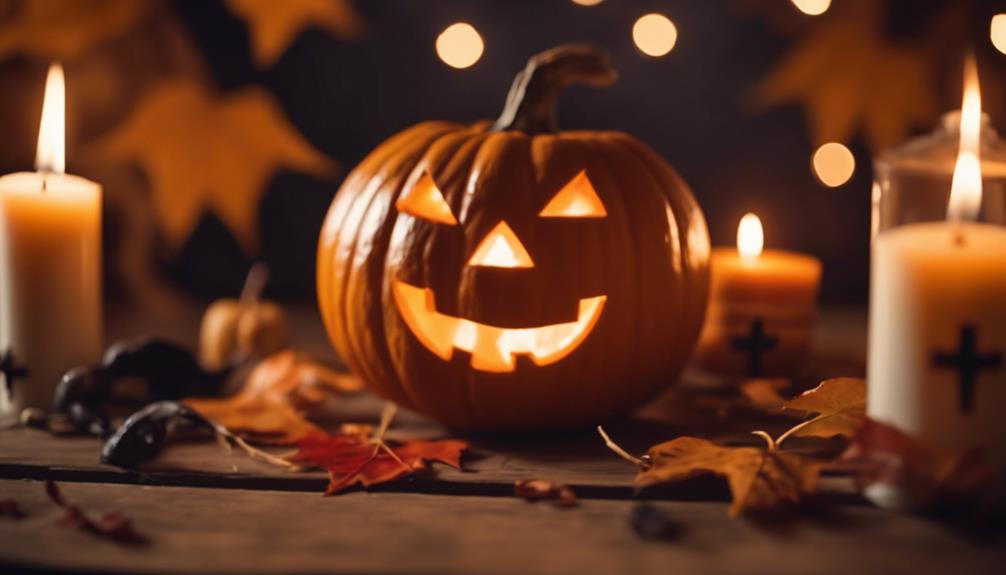
Halloween holds religious significance as the eve of All Saints Day, a Christian holiday that celebrates saints and martyrs.
This connection between Halloween and All Saints Day highlights the shift from the living to the deceased.
Some Christian denominations view Halloween as a time to honor departed loved ones and saints, blending Celtic pagan traditions with Christian observances.
Halloween and Paganism
Originating from ancient Celtic traditions, Halloween's religious significance intertwines pagan beliefs with Christian practices, creating a unique holiday fusion. The roots of Halloween can be traced back to the Celtic festival of Samhain, which marked the end of the harvest season and the beginning of winter. The Celts believed that on the night of October 31, the boundary between the living and the dead was blurred, allowing spirits to roam the earth.
Over time, Halloween became intertwined with Christian practices through a process known as Christianization, blending elements of both belief systems. The use of costumes and jack-o-lanterns, for instance, can be linked back to early Celtic rituals. This evolution highlights the rich history of Halloween and how it has incorporated various cultural and religious influences over the centuries.
Christianity and Halloween
With Christian origins, Halloween's religious significance is rooted in the fusion of pagan beliefs and Christian practices. The early Church likely Christianized the Celtic festival of Samhain, incorporating it into All Hallows Day. This day marked the eve of All Saints' Day, a time to honor saints and martyrs. Over time, Halloween evolved into a holy day of obligation in Western Christianity. The customs associated with Halloween, such as dressing up in costumes and carving pumpkins, may have been influenced by Celtic harvest festivals. Additionally, Irish and Scottish immigrants played a significant role in bringing these Halloween customs to North America.
| Christian Origins | Influence of Celtic Festival | Role of Irish and Scottish Immigrants |
|---|---|---|
| All Hallows Day | Celtic Samhain | Introducing customs to America |
Cultural Traditions on Halloween
Cultural traditions surrounding Halloween showcase a blend of religious practices and community celebrations that have evolved over time. These traditions hold deep roots in both the ancient Celtic festival of Samhain and Christian traditions, creating a unique mix of customs and beliefs. When exploring the cultural significance of Halloween, consider the following:
- Costumes: The tradition of dressing up on Halloween dates back centuries and is believed to have originated from the practice of wearing disguises to ward off evil spirits during Samhain. Today, costumes play a central role in the festive spirit of Halloween, allowing individuals to express creativity and engage in playful transformations.
- Irish Immigrants: The influx of Irish immigrants to the United States in the 19th century had a significant impact on the modern celebration of Halloween. Their customs and folklore, including traditions related to Samhain, merged with existing practices in America, shaping the holiday as it's understood today.
- Festival of Samhain: The ancient Celtic festival of Samhain marked the end of the harvest season and the beginning of winter. It was a time when the boundary between the living and the dead was believed to blur, allowing spirits to roam the earth. This concept of honoring the deceased and embracing the cycle of life and death continues to resonate in Halloween traditions worldwide.
Federal Recognition of Halloween

Is Halloween officially recognized as a federal holiday in the United States?
Despite its widespread celebration, Halloween doesn't hold the status of a federal holiday like Christmas or Thanksgiving. This lack of federal recognition means that Halloween isn't a day off for employees, and there are no specific federal regulations or requirements related to the holiday.
Unlike official holidays, businesses aren't obliged to provide special accommodations or pay for Halloween-related activities. The roots of Halloween trace back to the ancient Celtic festival of Samhain, which marked the end of the harvest season. When Irish immigrants brought their traditions to the United States, Halloween evolved into the festive occasion known today.
While Halloween is culturally significant and enjoyed by many, it remains more of a cultural celebration than a formal holiday with legal or official implications. Therefore, individuals and communities are free to observe Halloween in ways that suit their preferences without the constraints typically associated with recognized federal holidays.
Economic Impact of Halloween
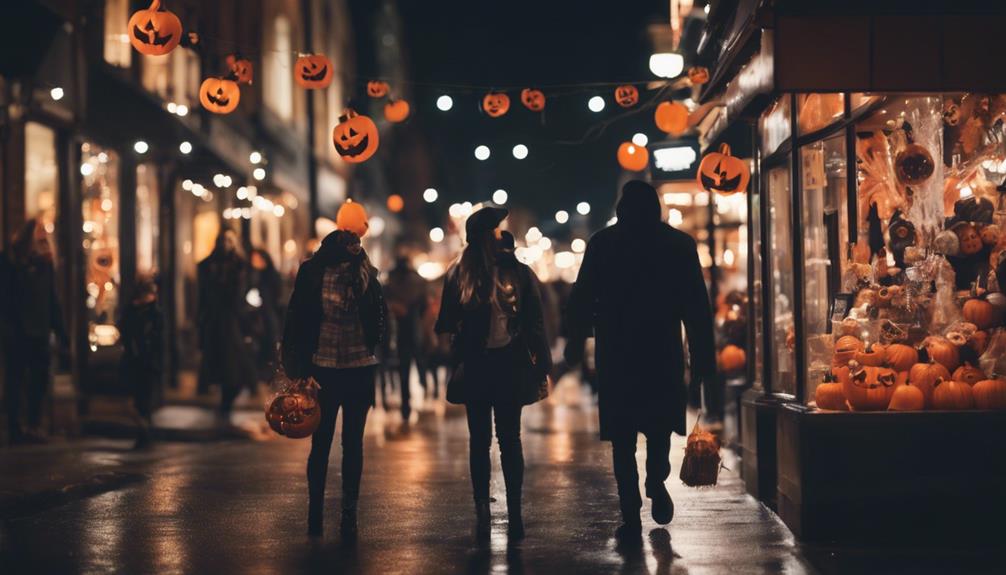
Halloween's economic impact in the United States is substantial, with annual consumer spending exceeding $9 billion. This spooky holiday boosts the economy through various channels such as retail, entertainment, and hospitality. Here are three key points to bear in mind:
- Seasonal Jobs: The Halloween industry creates numerous seasonal jobs in sectors like retail and hospitality. From costume shops to haunted houses, businesses ramp up their workforce to meet the increased demand during this festive season, providing employment opportunities for many individuals.
- Retail Revenue: Halloween is the second largest commercial holiday in the U.S., following Christmas. Retailers capitalize on this by stocking up on Halloween merchandise months in advance to cater to consumers looking for costumes, decorations, and treats. This surge in retail activity notably contributes to the overall revenue generated during this time.
- Consumer Spending: On average, each American spends around $86 on Halloween-related items such as costumes, decorations, and candy. This collective consumer spending propels the economy forward, making Halloween a noteworthy contributor to the country's economic landscape.
Cultural Celebrations of Halloween
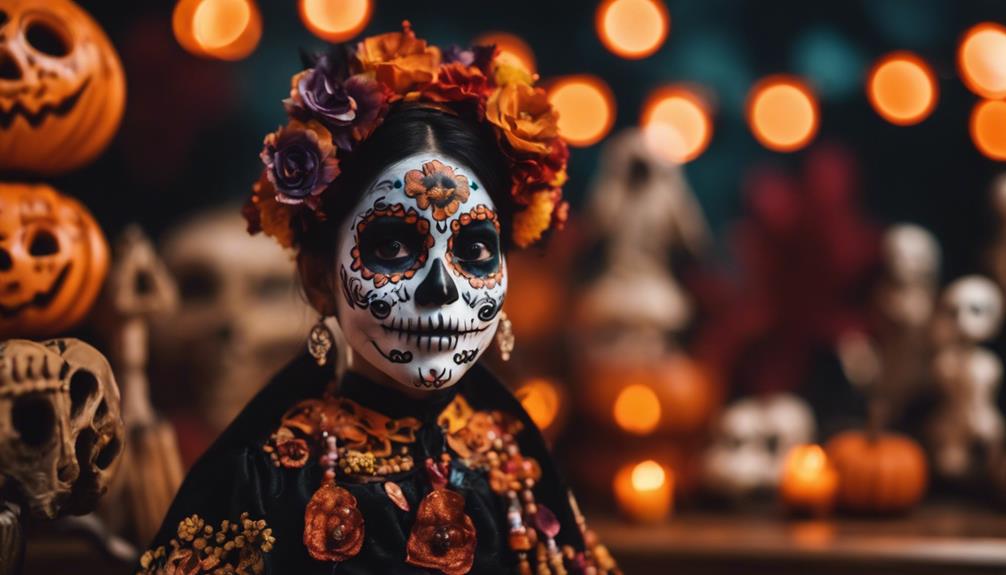
Halloween's rich cultural celebrations stem from ancient Celtic traditions, with the festival of Samhain playing a pivotal role in its origins.
Symbolism in Halloween, such as jack-o'-lanterns and costumes, reflects themes of warding off evil spirits and embracing the supernatural.
Modern Halloween traditions, like trick-or-treating and haunted houses, continue to evolve as communities worldwide embrace this festive occasion.
Origins of Halloween
The origins of Halloween as a cultural celebration trace back to the ancient Celtic festival of Samhain, which marked the shift from the harvest season to winter. The Celts believed that during Samhain, the boundary between the living and the dead was blurred, allowing spirits to roam the earth. This belief led to traditions like wearing costumes to disguise oneself from malevolent spirits.
The ancient traditions of honoring deceased ancestors and warding off evil spirits gradually merged with Roman influences and later Christian practices, shaping the Halloween as understood today. These cultural amalgamations have contributed to the diverse and rich tapestry of Halloween customs seen in modern popular culture.
From trick-or-treating to spooky decorations, Halloween has become a beloved occasion for people to come together, have fun, and embrace the spirit of the season. The evolution of Halloween showcases how traditions can endure through time, adapting and blending to create a celebration that resonates with people across different backgrounds and beliefs.
Symbolism in Halloween
Symbolism plays an essential role in the cultural celebrations of Halloween, with traditional colors like black, orange, and purple carrying deep meanings tied to the holiday. Black symbolizes death and the afterlife, orange represents the harvest season, and purple signifies mystery and magic. These colors set the eerie and mystical tone of Halloween festivities.
Iconic symbols such as pumpkins, often carved into Jack-o-lanterns, are synonymous with Halloween. Originating from an Irish Christian folktale about a man named Stingy Jack, Jack-o-lanterns symbolize warding off evil spirits on Halloween night. Other common symbols like black cats, witches, and scarecrows also hold cultural significance, embodying various aspects of Halloween folklore.
Decorations featuring skeletons, ghosts, and supernatural elements further emphasize the holiday's themes of the afterlife and the spirit world. Symbolic offerings left for the Aos Sí and the dead, as well as protective bonfires, are integral parts of Halloween's rich cultural traditions.
Modern Halloween Traditions
Embrace the festive spirit of Halloween with modern traditions like trick-or-treating, costume parties, and haunted house visits. These activities have become staples of Halloween celebrations, offering a mix of excitement and spookiness that people of all ages can enjoy.
Here are three ways you can partake in the Halloween fun:
- Costume Parties: Dressing up in creative costumes and attending themed parties adds a sense of camaraderie and creativity to the holiday. Whether you prefer spooky or silly costumes, costume parties are a great way to showcase your Halloween spirit.
- Trick-or-Treating: This classic tradition brings joy to children and adults alike as they go door to door collecting sweet treats. The thrill of knocking on doors and yelling 'Trick or Treat!' never gets old, making it a cherished Halloween tradition.
- Haunted House Visits: For those seeking a thrilling experience, visiting a haunted house can provide a good scare and adrenaline rush. These attractions are designed to send shivers down your spine and are perfect for those who enjoy a good fright.
Get into the Halloween spirit by engaging in these modern traditions that have become synonymous with the holiday.
Comparison to Official Holidays

While Halloween is widely celebrated, it doesn't hold the same official status as traditional holidays. In the United States, Halloween isn't recognized as an official federal or religious holiday. This means that unlike official holidays such as Christmas or Thanksgiving, Halloween doesn't come with mandated time off or compensation from employers.
Only 27% of Americans consider Halloween a holiday, with 44% viewing it as a cultural celebration instead. It's more widely acknowledged as a time for fun and festivities rather than a formal holiday. Additionally, Christian denominations don't officially observe Halloween as a religious holiday, further contributing to its status as a cultural rather than religious celebration.
Future Outlook for Halloween
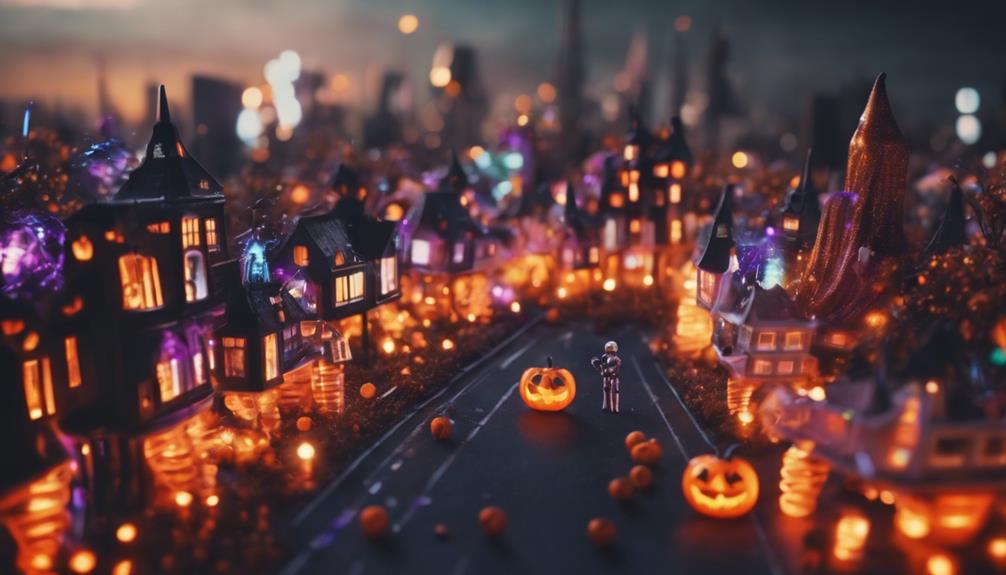
Looking ahead, Halloween is poised to undergo further evolution as new trends and traditions shape its future celebrations. As the holiday continues to evolve, there are several key aspects to contemplate:
- United Celebrations: Halloween has the potential to bring communities and cultures together, fostering a sense of unity through shared festivities and traditions.
- Embracing the New: With advances in technology, Halloween may see innovative ways of celebration, such as virtual experiences and interactive activities that enhance the overall holiday experience.
- Sustainable Practices: The future of Halloween could be characterized by a shift towards sustainability, with eco-friendly decorations, and efforts to reduce waste through thoughtful practices like sustainable candy packaging.
The global popularity of Halloween is expected to grow, with more countries embracing and adapting the holiday to their own cultural contexts. By embracing new trends, fostering unity, and prioritizing sustainability, Halloween is set to continue engaging audiences worldwide for years to come.
Frequently Asked Questions
Is Halloween Considered a Holiday?
When considering if Halloween is a holiday, it's important to recognize that it isn't officially classified as a religious or federal holiday in the US. While some people view it as a holiday, others see it more as a cultural celebration.
Employers typically don't provide compensation for Halloween since it's not recognized as a holiday. In Christian denominations, Halloween doesn't hold official holiday status.
Do You Get a Holiday on Halloween?
You don't get a holiday on Halloween in the United States. It's not a recognized federal or official holiday, so employers don't typically provide time off or extra compensation for the day.
While some people may consider Halloween a celebration, it's not widely viewed as a formal holiday. So, you'll likely need to plan any festivities around your regular work or school schedule.
When Did Halloween Become a Holiday?
When Halloween became a holiday dates back to the 8th century when Pope Gregory III dedicated All Saints Day on November 1. This marked the beginning of Halloween as a blend of Christian and Celtic traditions.
Over time, the celebration grew in popularity, especially in the United States due to Irish and Scottish influences.
While not an official federal or religious holiday, Halloween is widely recognized and celebrated as a cultural tradition in many countries.
Is Halloween Not a Public Holiday?
Halloween isn't considered a public holiday in the United States. Employers aren't obligated to provide time off or compensation for Halloween. It doesn't hold an official status as a holiday in the US, and Christian denominations don't formally recognize it as a religious holiday.
Only 27% of Americans view Halloween as a holiday, with 44% seeing it as a celebration.
Conclusion
To sum up, Halloween may not be officially recognized as a federal holiday, but its cultural significance and widespread celebrations make it feel like one.
The historical origins, religious ties, economic impact, and festive traditions all contribute to its unique status in the holiday calendar.
So, whether you see Halloween as a holiday or not, one thing is for sure – it's a time for spooky fun, creative costumes, and delicious treats that bring people together in a uniquely festive way.
